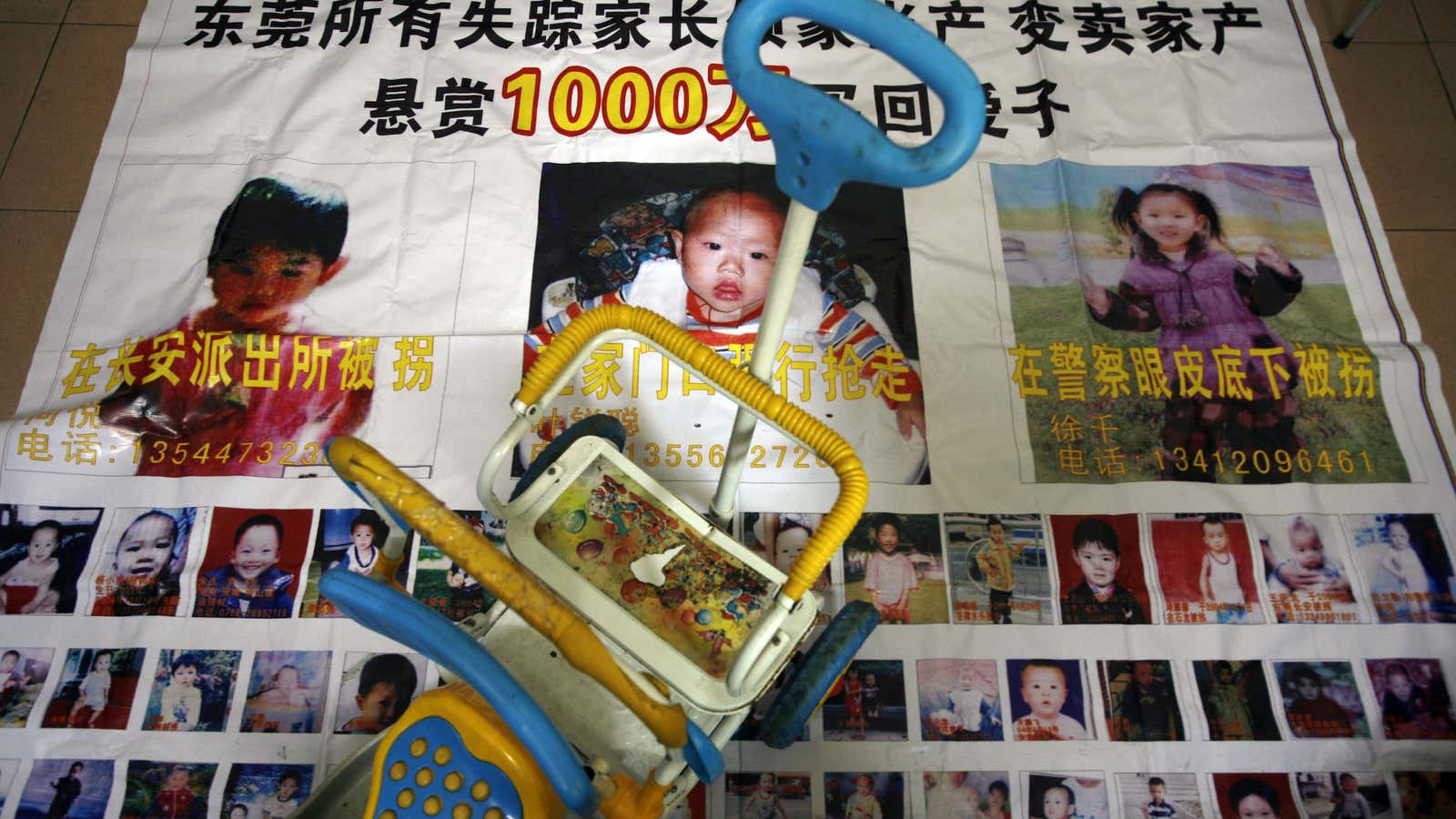For years, demand in the West for adoptions from China was thought to have fuelled a black market in the trafficking of babies. In 2007 and again in 2011, China tightened regulations on international adoptions, in hopes of tamping down the incentives for orphanages, local villages, and officials to steal and sell Chinese infants for money.
But now it is wealthier Chinese families, who either have trouble conceiving or are desperate for a male heir, who seem to be sustaining China’s child-trafficking industry. According to police officials, in 2012 infant boys bought for less than $5,000 in poorer inland China could be sold for three times that amount in wealthier cities on China’s coast. In 2012, police rescued 89 kidnapped children sold in southern China.
Today, officials announced the arrest of more than 1,000 people from four baby-trafficking rings who were selling children via websites and message groups. This follows the sentencing last month of a Chinese doctor convicted for stealing and selling seven newborns.
Exactly how many Chinese children are trafficked, and why, has been hard to figure. The Chinese government acknowledges the problem, which may be one reason why recent busts are announced with such fanfare. But the topic is taboo for Chinese families who may have unwittingly adopted a kidnapped child—as has been the case for American families who are starting to question the backstories of their adopted children’s arrivals at Chinese orphanages.
Another reason for China’s enduring infant-trafficking problem is that poor Chinese families are sometimes compelled to give up their children—so much so that some cities have installed customized “baby hatches” for the safe drop-off of unwanted children. Many blame the country’s population control policy, the so-called one child policy, which drives poor couples who have a second child to give it up lest they face steep fines. Others, knowing they can only have one child, sometimes give up girls or disabled children in hopes of having an able-bodied boy later on.
